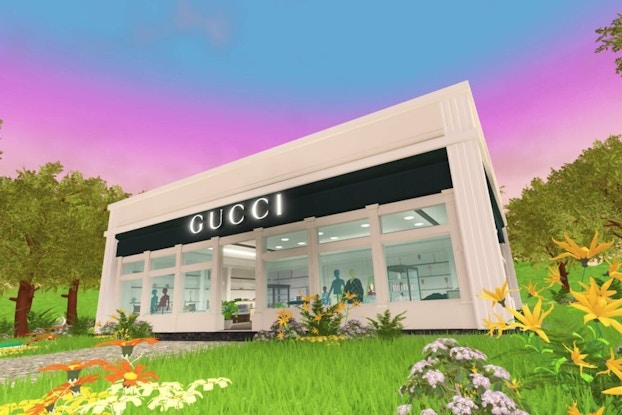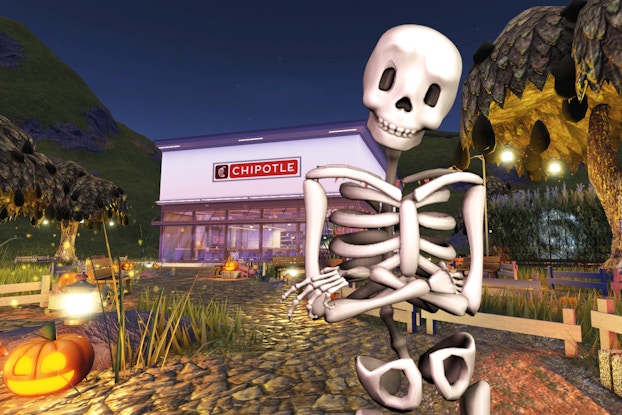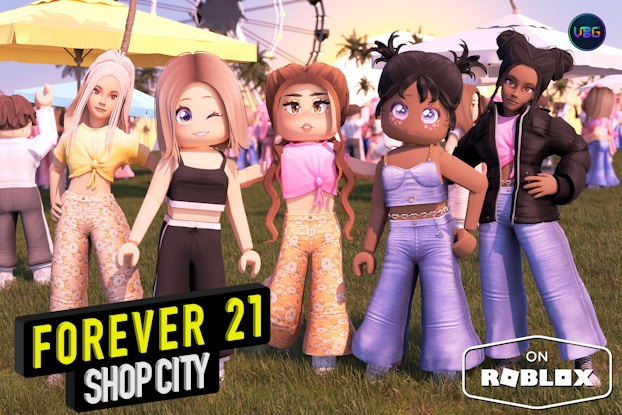
Why it matters:
- Big tech companies are investing heavily in the metaverse — defined as the next iteration of the internet and an immersive, virtual reality where people and businesses can interact — which is expected to grow at a 39.4% compound annual rate through 2030.
- Brands that succeed in the metaverse offer unique experiences for customers by delivering authenticity and creativity in various forms, including music, artwork, videos, or redeemable real-world bonuses, experts said.
- The metaverse does provide businesses with sales opportunities, but the concept is more about branding and fostering community, sources said.
It may be easy to think of the metaverse as the Wild West of business frontiers, where opportunities abound and sales are there for the taking. Before companies set out for new adventures in this evolving medium, however, they need to understand that there are rules to follow and best practices to learn, just like any other new platform where a brand may be introduced.
The metaverse itself is defined in different ways. It’s often described as the next iteration of the internet, or an immersive virtual reality where people (and businesses) can interact, sometimes using augmented reality glasses or other devices. It can include video games, video-motion avatars, non-fungible tokens (NFTs), cryptocurrency, and other digital assets, and it has been gaining increasing appeal as a slice of cyberspace where businesses can market their brands and sometimes drive real revenues.
Companies including Gucci, Forever 21, Coca-Cola, Chipotle, and others have ventured into the realm, making connections between virtual worlds and the real one.
Justin Hochberg, Co-Founder and CEO of Virtual Brand Group, which launched fashion retailer Forever 21 as a virtual, immersive experience on gaming platform Roblox, described the metaverse as “a transformative business opportunity.”
“It is changing the face of consumer engagement in terms of how people find information, use information, meet people, buy things, and sell things in the virtual world and the physical world,” he told CO—. “The depth of consumer engagement is vastly more meaningful than what you can achieve on social or e-commerce [platforms].”
The metaverse currently includes more than 50,000 virtual worlds, according to Statista, and is forecasted to have strong growth potential. About 12% of internet users said they are very interested in the metaverse, Statista reported.
Companies including Meta Platforms (formerly Facebook), Microsoft, Epic Games, and Roblox are all investing in the future of the metaverse. Grand View Research estimated the global metaverse market size at $38.85 billion in 2021, and projected compound annual growth of 39.4% through 2030.
[Read: Why Brands Are Investing in Digital Out-of-Home Advertising to Drive Business]
It is changing the face of consumer engagement in terms of how people find information, use information, meet people, buy things, and sell things in the virtual world and the physical world. The depth of consumer engagement is vastly more meaningful than what you can achieve on social or e-commerce [platforms].Justin Hochberg, Co-Founder and CEO, Virtual Brand Group
Roblox: ‘Successful collaborations involve brands closely listening to our community, learning from it and engaging with it in an authentic way’
Preston Woo, Chief Financial Officer and Head of Strategy at Tafi/Daz 3D, which last year partnered with Coca-Cola to design virtual wearables for the beverage giant’s first NFT collectibles offered in the metaverse, said companies should have specific goals when they venture into these virtual-world platforms.
“Find something your team believes in and use it to fuel your project in a way that’s authentic and stays true to your core values,” he told CO—.
Companies need to understand that their brand may be engaging with a new audience when it enters the metaverse, and the people who are in the space can quickly spot a brand that doesn’t embrace their world, said Woo.
“This community is sensitive to brute-force entries that feel out of place,” he said. “Keep the values of NFT, crypto, and metaverse enthusiasts in mind and embrace the possibilities to let the community know you’re all-in.”
Winnie Burke, Senior Director of Global Brand Partnerships at Roblox, a gaming platform that enables brands to establish a virtual presence, agreed that authenticity is essential.
“Successful brand collaborations on Roblox involve brands closely listening to our community, learning from it, and engaging with it in an authentic way,” she said.
Burke recommends that brands study what others are already doing on the platform and become familiar with the Roblox community.
“Once you have a good understanding of where your brand could enhance or create meaningful and unique experiences, it’s easier to set the right goals and strategy,” she said.
[Read: Marketers from Kellogg to Walmart Optimize QR Codes to Drive Consumer Engagement and Sales]

Selling digital garments from Ralph Lauren and Gucci in virtual worlds to brand fans
Companies often start by selling virtual items on Roblox, which Burke described as “an easy way to test the waters.”
Roblox has its own digital currency, Robux, which consumers can use to buy game enhancements as well as virtual garments and accessories for their avatars. These are often priced as low as $1 or $2. Robux can be earned in games or purchased.
Gucci, for example, began offering virtual items for sale on Roblox, which led to a pop-up virtual world with a fashion exhibition in the company’s virtual Gucci Garden, timed to tie in with Gucci’s physical exhibition in Florence. The company followed that with the recent launch of a virtual experience on Roblox called Gucci Town, where users can dress their avatars in Gucci clothes and participate in a range of activities.
Similarly, Ralph Lauren last December launched The Winter Escape for the holidays on Roblox. Set in an Alpine village, the “lifestyle space” offered virtual ice skating, Ralph’s Coffee Truck, and other holiday activities to create a festive atmosphere for the brand’s fans on the platform, Burke said. It also served as a platform for the introduction of a virtual apparel line.
Other examples include NASCAR’s user-generated content experience, Jailbreak, which has a large fan base on Roblox.
Brands are increasingly choosing to create ongoing, virtual worlds, which Burke described as “basically an immersive, 3-D version of a social channel for ongoing engagement of fans.”
“We are seeing more and more brands coming to the platform with long-term plans for a presence and ongoing content updates [on Roblox],” she said.
Examples include Vans World, Nikeland, and NFL Tycoon.
The metaverse reflects “the natural evolution of social media interactions, allowing fans to connect with brands, creators, community members, and content curated specifically for them in immersive 3-D environments,” said Burke.
Engagement with the Roblox community often leads to positive fan reaction to brands, both on and off the platform, Burke said.

Tapping the metaverse to drive real-world brand affinities and purchases
Some brands, such as Chipotle Mexican Grill, offer codes that can be earned in their virtual experience and then redeemed for physical items. The restaurant chain credited last year’s Boorito Maze promotion on Roblox for helping drive one of its highest digital-order days of all time, for example, Burke said.
Ralph Lauren also saw an influx of digital customers during the time The Winter Escape experience was live on the platform, Burke said.
“For many brands, however, the main goal is building affinity with Gen Z, which can in turn impact their purchasing decisions in the real world,” she said. “This positive brand association and brand building that happens on Roblox translates into real-world brand affinity and ultimately purchase consideration.”
A supportive environment: Even brand competitors tend to cheer widespread success in the metaverse medium
Businesses that enter the metaverse and the creators that work with them tend to be supportive of each other, Woo said. Companies involved in the metaverse, even brand competitors, tend to want the medium to succeed, he said.
“They’re the pioneers, fueling momentum in a new paradigm shift around digital ownership,” he said. “This is a neutral, platform-agnostic playing field where one major success flows into the tide that raises all ships.”
Companies that succeed in the metaverse offer unique experiences for customers through their creativity, said Woo. This can come in various forms, including music, artwork, videos, or redeemable real-world bonuses.
Often brands are seeking to connect with specific communities in the metaverse, he said, and making those connections can be a key step toward generating a return on investment.
CO— aims to bring you inspiration from leading respected experts. However, before making any business decision, you should consult a professional who can advise you based on your individual situation.
Follow us on Instagram for more expert tips & business owners’ stories.
CO—is committed to helping you start, run and grow your small business. Learn more about the benefits of small business membership in the U.S. Chamber of Commerce, here.









